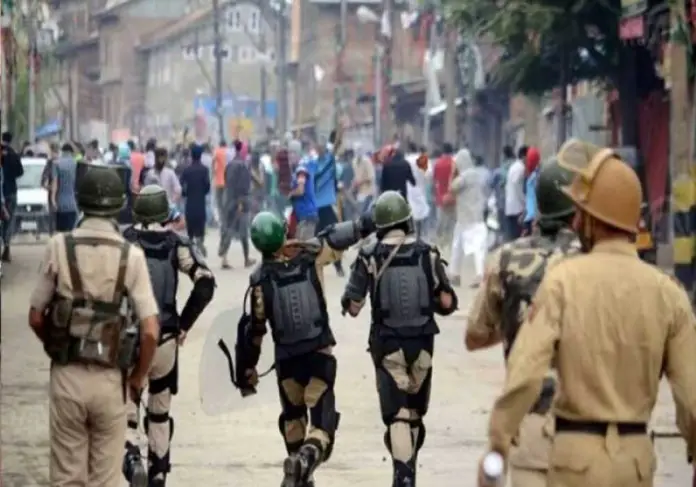A landslide victory of the BJP in the 2019 Indian general elections intensified the efforts to implement the Hindutva agenda of right-wing Hindu forces – the agenda of complete integration of Indian illegally occupied Jammu and Kashmir with the Indian Union and revival of the Hindu civilization in the territory. Hence, August 05, 2019 became a turning point in the history of IIOJK.
The presidential orders revoked Article 370 and Article 35A of the Indian constitution, which had accorded special autonomous status to Jammu and Kashmir-a region which used to enjoy a separate constitution, flag, and official language and was divided into two Union Territories-Jammu & Kashmir with a legislature and Ladakh without a legislature. Jammu & Kashmir is a territory where non-Kashmiris are more privileged than locals in acquiring property and jobs in government institutions.
The Modi government’s unilateral, illegal action of August 5th, 2019 created an environment of fear and terror in IIOJK by adopting a multipronged military approach to quell the Kashmiris’ resistance. This involved the suspension of internet, cellular and landline phones and television services. The cancellation of a major Hindu pilgrimage, Amarnath Yatra, the closure of schools and colleges, strict restrictions on the media and newspapers, and the deployment of 38,000 additional troops were some of the destitution encountered by Kashmiris as a result of the abrogation of the Articles 370 and 35A. This proscribed act climaxed in the arrest of around 19000 Kashmiris including Hurriyat front-runners, lawyers, political protesters, human rights activists and leaders of religious, trade and social organizations. This military action constrained over 8 million Kashmiris to be locked down in their homes for months, creating a humanitarian crisis as people faced an acute shortage of essential commodities and life-saving drugs. Indian troops, under the cover of draconian laws, intensified ferocious operations and martyred 660 Kashmiris, injured 2500 people, and damaged 1092 houses from August 5th, 2019 till last month.
The whole purpose behind the annulment of Articles 370 and 35A is to turn the Muslim majority into a minority by legalising the settlement of non-Kashmiri Hindus in the valley. Sanctioning massive demographic changes is aimed to damage the essence of the UN resolutions declaring Jammu and Kashmir as a disputed territory whose fate is to be decided by the Kashmiri People through the exercise of their right of self-determination. This act was in anticipation of getting favourable results if Delhi is compelled to hold a plebiscite at any point in the future.
The 5th August move by the Indian government caused strong resentment across Pakistan. As an expression of solidarity with the people of IIOJK, Pakistan reaffirmed its continued support for the Kashmiri cause, rejecting unilateral changes in the status of occupied Jammu and Kashmir as a violation of international and bilateral agreements. The Pakistani government repeatedly urged the UN and international community to arbitrate and stop India from altering the disputed territory’s demography. Since the annulment of Articles 370 and 35A, the Pakistan Parliament has passed several resolutions expressing solidarity with the oppressed people of IIOJK. The Pakistan Army has declared that Pakistan is all set to fight till the last bullet, the last soldier for Kashmir.
The Kashmir dispute – an unresolved dispute – is an impending powder keg in the region, admonishing the global community, predominantly the UN, to step forward brazenly to stop New Delhi’s onslaught on Kashmiris’ identity and the Muslim majority status of IIOJK. So the international community must take measures to settle the Kashmir dispute in accordance with the aspirations of the Kashmiri people without any further delay.







